Professor Yulong Li from Peking University Visited IBP and Delivered a Bei Shizhang Lecture
On June 3, 2021, Professor Yulong Li, School of Life Sciences, Peking University, was invited by IBP to give a Bei Shizhang Lecture, entitled "new genetically encoded sensors to spy on monoamine dynamics and functions in vivo". The meeting was presided by Prof. Li Liu.
Prof. Yulong Li's research group focused on synapses, the basic structure of neuronal communication, and carried out research work from two levels: one is to develop new imaging probes, which can be used to analyze the complex functions of the nervous system in time and space scales; the second is to explore the regulatory mechanism of synaptic transmission, especially the regulation of neurotransmitter release under physiological and pathological conditions. Their recent work has been published in Cell, Neuron, Nature methods, Nature Biotechnology, Nature Neuroscience, eLife and other high-level journals. Professor Yulong Li is the winner of National Fund for Distinguished Young Scholars and Scientific Exploration Award in 2019. He has won Wu Jieping Paul Janssen Medicine Prize-Innovation Award, Tan Jiazhen Life Science Award, Zhang Xiangtong Neuroscience Young Scientist Award, Zhongyuan Union Life Medicine Innovation Breakthrough Award, Peking University - Bringer Ingelheim Researcher Award, Green Leaf Biomedical Outstanding Young Scholar Award, etc. Some of the research results were selected into the "Top Ten Progress of Life Sciences in China" and "China's Top 10 Medical Science and Technology News" in 2018.
In this report, Professor Yulong Li mainly introduced a variety of sensitive, specific and genetically coded new neurotransmitter probes (GPCR-Activation-Based sensor, GRAB) developed by his research group and their applications. By comparing with the traditional methods of detecting neurotransmitters, Professor Li demonstrated the advantages of GRAB in temporal and spatial resolution. GRAB (including acetylcholine fluorescent probe, dopamine fluorescent probe, etc.) has been successfully developed to analyze synaptic activity in local neural circuits, which provides an important tool for understanding the release characteristics of corresponding neurotransmitters under physiological and pathological conditions. Professor Li focused on the recent achievements in the development of serotonin fluorescent probes. By detecting the release characteristics of serotonin in the olfactory learning and memory center of Drosophila melanogaster during the classical conditioning training, Professor Li's research group revealed the potential neural regulation mechanism of synaptic plasticity in Drosophila melanogaster conditioned learning and memory.
Professor Yulong Li made a wonderful report on the recent achievements of his research group. After the report, the teachers and students present exchanged ideas with Professor Yulong Li on the issues they were interested in. After the meeting, Professor Yulong Li also had academic exchanges with many PIs in the Institute.
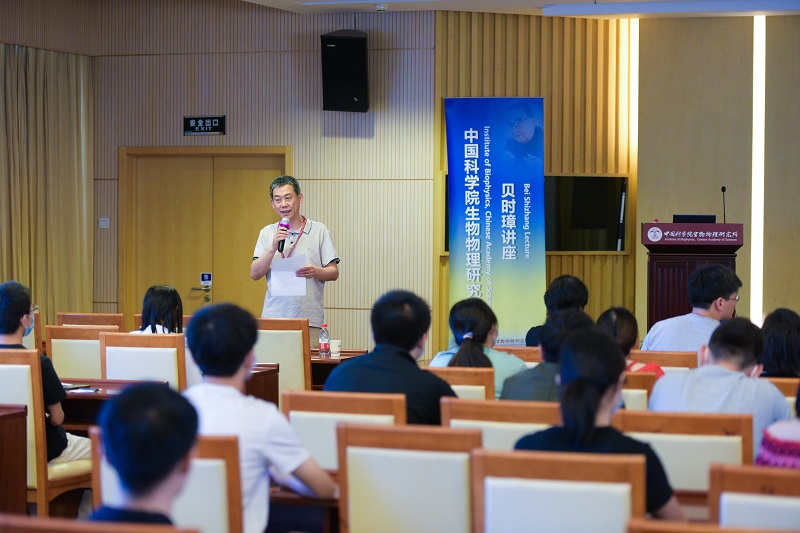
Prof. Li Liu hosted the lecture

Prof. Yulong Li was giving the lecture
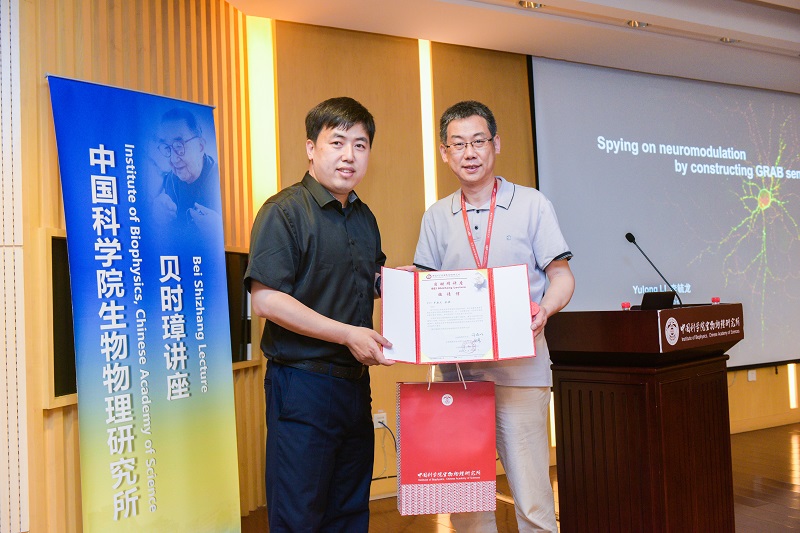
Prof. Li Liu and Prof. Yulong Li
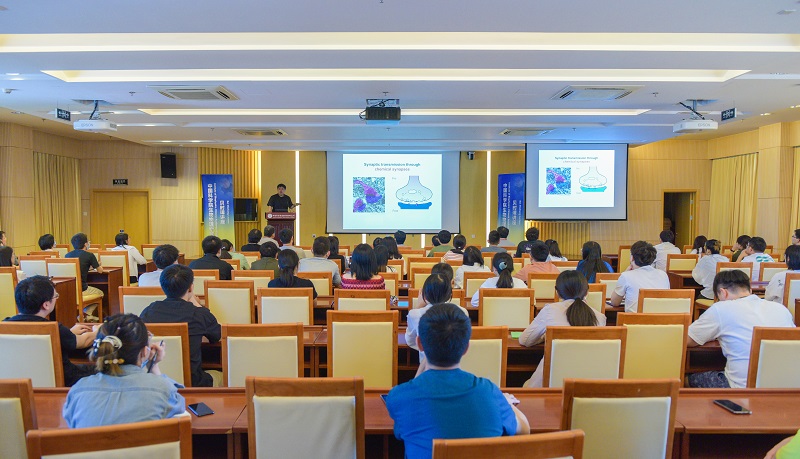
The audience
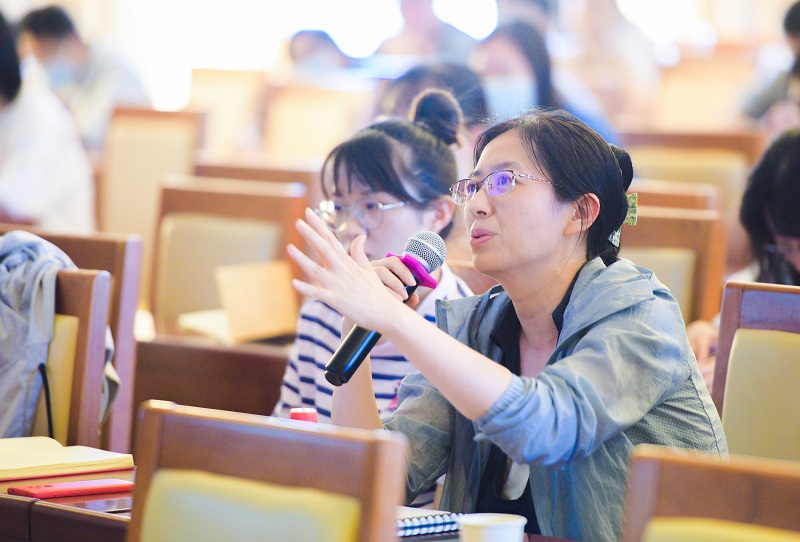
Researchers exchanged ideas with Prof. Yulong Li
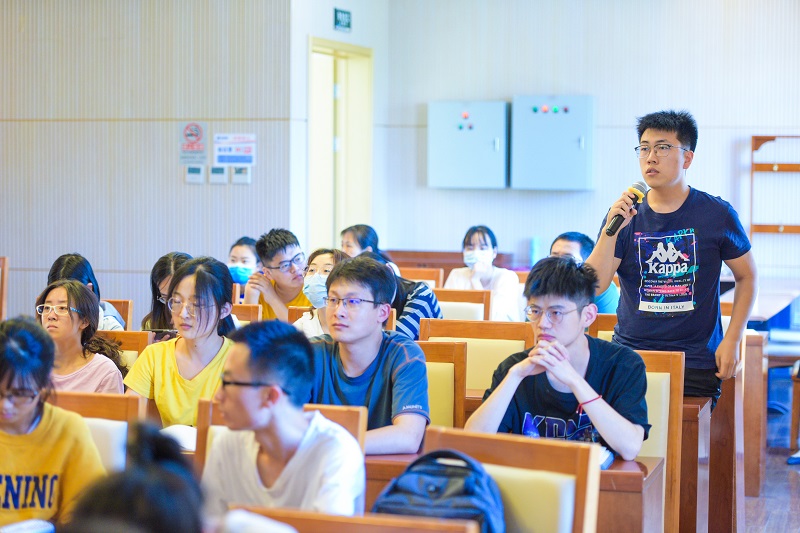
Students exchanged ideas with Prof. Yulong Li

